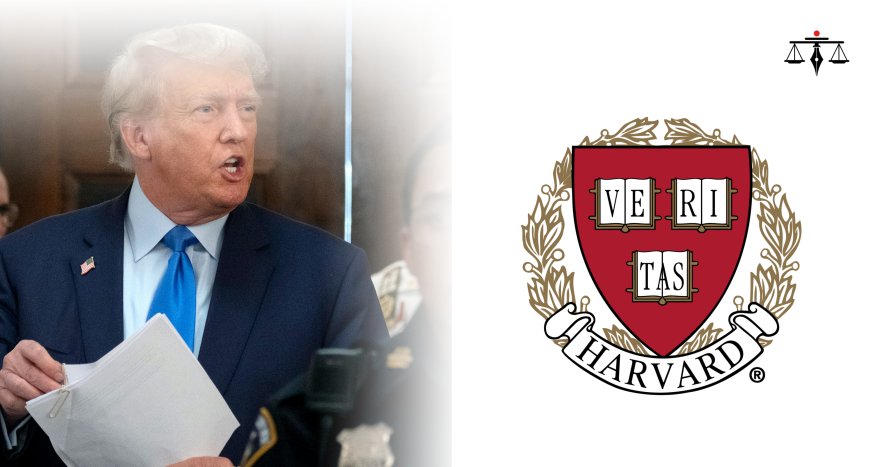Harvard vs. Trump: A Legal Clash Over International Student Rights
Trump’s controversial move to restrict international students during the pandemic led Harvard to sue the U.S. government. The decision shook global education and dealt a major blow to Indian students aiming to study in the U.S.

The Trump administration's plans to exclude Harvard University from accepting overseas students has sparked intense discussion and alarm among academics around the world. Announced on May 22, 2025, this extraordinary measure not only upends the lives of thousands of students but also jeopardises the United States standing as a global leader in higher education. The impact is especially profound for Indian students, who have long viewed Harvard as the gold standard for academic achievement.
What Happened?
Harvard's Student and Exchange Visitor Program (SEVIS) certification was revoked by the U.S. Department of Homeland Security (DHS), which prevented the university from accepting new international students and forced existing international students to transfer or risk deportation. Approximately 6,800 international students, including almost 800 from India, make up 27% of Harvard's student body. The university and its international community are in shock by the decision, which is allegedly connected to an ongoing federal probe.
The Global Impact
For decades, the United States has been the top destination for international students, with institutions like Harvard leading the way. This decision threatens to undermine that legacy that international students bring diverse perspectives, drive research, and enhance the academic environment. Losing this talent pool could diminish Harvard’s and by extension America’s intellectual vitality. International students pay higher tuition rates and contribute billions to the U.S. economy. Their absence could create financial strain not only for Harvard but for the broader higher education sector. American universities have long been engines of global influence, fostering goodwill and building international networks. This ban risks eroding that soft power, as students look elsewhere for opportunities. The uncertainty created by targeting Harvard is already spreading- Fear Among International Students: Students at other universities now worry about their own status, leading to anxiety and a potential decline in applications. Countries like Canada, UK and Australia which have more welcoming policies, are poised to attract top talent who might have otherwise chosen the U.S.
The Indian Perspective
For Indian students and families, Harvard represents the pinnacle of academic aspiration. Hundreds of Indian students currently at Harvard face sudden upheaval, with their academic and career plans thrown into disarray. National Impact: India is the second-largest source of international students in the U.S. The ban not only affects individuals but also the broader India-U.S. educational partnership, which has been a cornerstone of bilateral relations. Figures such as AAP MP Raghav Chadha have criticized the move as an attack on academic freedom and global collaboration. Indian media and social platforms are abuzz with stories of affected students and calls for the U.S. to reconsider its stance. If top Indian students are forced to look elsewhere, the U.S. risks losing out on the very talent that has fueled its innovation and growth. The move could sour relations at a time when India-U.S. cooperation is more important than ever.
Many students have expressed shock, frustration and a sense of betrayal, calling on Harvard to fight the decision in court. The university has condemned the action as unlawful and is pursuing legal avenues to restore its ability to enroll international students. International outlets and foreign governments are questioning the future appeal of U.S. higher education.
Trump’s decision to bar Harvard from enrolling international students, even as a temporary ban is more than an administrative action; it is a blow to the core values of academic freedom, diversity and global leadership that have defined American higher education. While the ban may be temporary, the immediate fallout is chaos and uncertainty for thousands of students, especially from India, who now face disruptions to their academic and career plans. The long-term risks are even greater: diminished U.S. influence, a weakened academic ecosystem and a loss of trust among the world’s best and brightest. Even a temporary measure can have lasting repercussions, signaling to the global community that the United States may no longer be the welcoming hub for international talent it once was.







